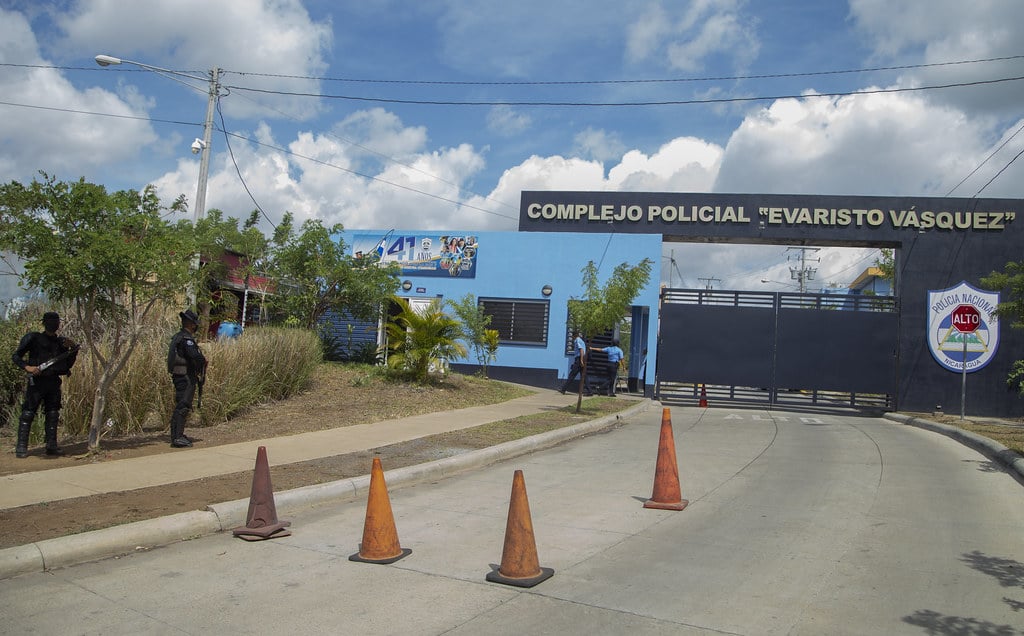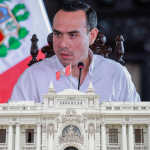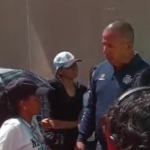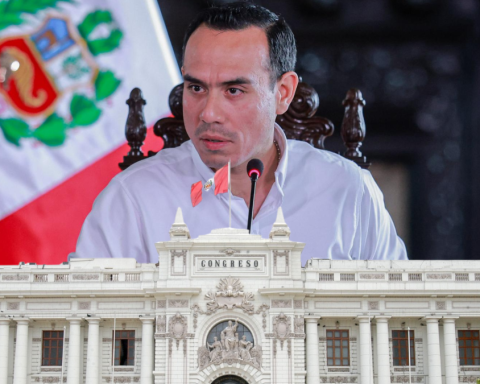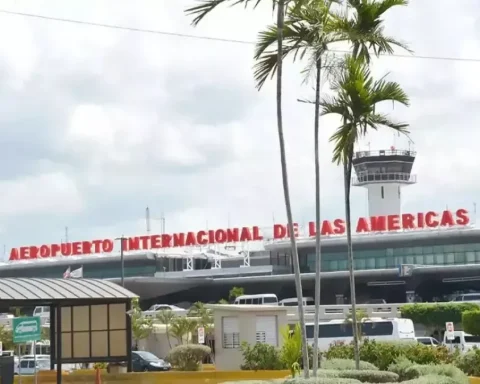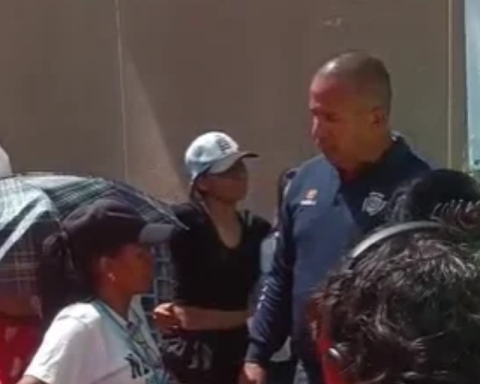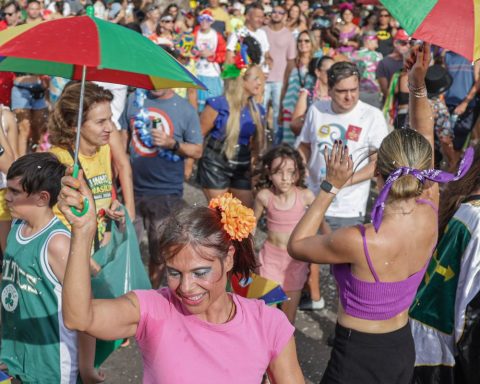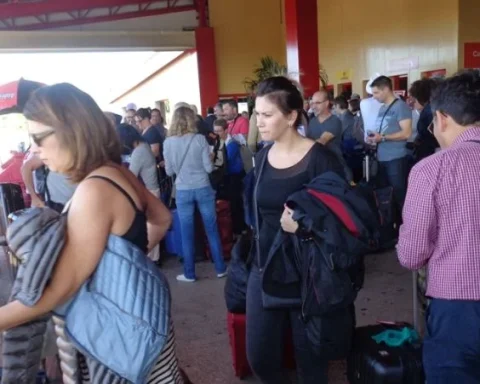Approaching the date of the last visit to the Judicial Assistance Directorate (DAJ), El Chipote, the relatives of prisoners of conscience wait with obvious anxiety for the phone to ring notifying the date of the next meeting, but it almost never occurs in the same period. . Without a schedule of visits and with evasive responses from the policemen who receive the bottles of water daily, the wait has become torture.
“We are in a limbo that we don’t know when we are going to see our relatives. And that worries us more because we don’t know if they are still in the punishment cells, if they have gotten sick, what do they need? Another relative whom we will call “Juan” for security, said that not knowing the dates of visits, anxiety takes over them for wanting to know about the state of health of his political prisoner.
During eleven months of confinement, the political prisoners in El Chipote have received only six visits from their relatives. The longest wait occurred after their capture and the imposition of preventive detention for ninety days to investigate them. Their relatives managed to see their faces again and hug them after 95 days of anguish.
The sixth and last visit — from March 17 to 19 — occurred after 52 days of waiting. The previous ones have had a difference of 45, 41, 35 and the closest one, 18 days. Impotence is evident among family members who claim to see political prisoners regularly, as established by law. “It is not possible that we are at the will of two people, because each visit we are clear that they are approved by Rosario-Murillo- and Daniel-Ortega-. No one in this country has the will”, claimed “Juan”.
The prohibition of regular visits to political prisoners in El Chipote violates article 130 of the regulations of Law 473, Law of the Penitentiary Regime and Execution of Sentence, which establishes the periodicity of family and conjugal visits for inmates located in the different regimens every 21, 15 and eight days.
Mynor Curtis, defense attorney for several prisoners of conscience, explains that the right of the prisoner is violated by not receiving visits from their relatives, and at the same time, that of the relatives by denying them contact with the convicted person.
Being sentenced and regardless of where the prisoners of conscience are serving their sentences -in this case in El Chipote- they have the same rights as the other political prisoners incarcerated in the different prisons of the National Penitentiary System, he adds.
However, until now, the relatives of the prisoners sentenced in El Chipote live in a “really terrible” uncertainty. This is how César Dubois, husband of the former president of Unamos and current political prisoner, Suyen Barahona, describes it. He is not at peace knowing the inhuman conditions in which he finds himself in El Chipote, “with a very limited diet, no communication, limited or non-existent medical care, and cases of isolation or in punishment cells, in addition to the constant mistreatment ”.
Photographs and searches during visits to El Chipote
Every visit is uncertain. Upon entering the DAJ, an officer checks the package that the relative is carrying and decides what is entered and what is returned. Contrary to the rest of the prisons, the relatives cannot deliver the food directly to their relatives and they do not know if, in fact, they receive all the food that they bring.
Without the scheduling of visits, “Karla” has been helped by a control agenda, in which she writes down the delivery dates of personal hygiene products, and in this way, calculates what her political prisoner might need according to the number of days that have elapsed since the last visit. It is not an infallible method, but there is no other option before secrecy.
During the first visits to the DAJ, the deployment of riot police was exaggerated. In the following months, the police presence decreased, narrates “Karla”. Family searches depend on the officer. Some are invasive, while others are more respectful, considerate. However, taking pictures is a constant and on the last visit it became a requirement to see prisoners of conscience.
Before the minibus, in which the family members are taken to where the detainees are, left, an officer told everyone: “there are going to be cameras, whoever has a problem, say so now and stay and not see his familiar. There is no problem”. The officer never spoke of the right of every person to refuse to be photographed, “Karla” claims. As is logical, no relatives protested and accepted against his will that they be photographed in order to see their political prisoners.
“We feel uncomfortable at the time of photography, but I prefer a thousand times the photo they want and at least I can know how my family member is during those two hours,” says “Karla.”
She lives in anxiety for not knowing about the physical and mental health and the conditions in which her relative is. She declares herself as a woman of faith and finds comfort in prayer. “I put it in the hands of God, what do I have left? I can’t do anything, no matter how much I want to, I can’t do anything”, she says with resignation.
The hardest for several relatives and prisoners of conscience who have minor children is that they do not allow them to see them. “We always miss our families. In my particular case, my son often asks about Suyen, and I can see in his little face the sadness, the uncertainty and the great emptiness that he feels”, says Dubois.
With no chance for the five-year-old to see his mother, “it’s like he died, we didn’t even have time to say goodbye. Nor have they allowed us any communication with our son, not a letter, not a drawing. They didn’t even allow Suyen to see our son’s photo for a moment during our trial. The treatment they have given to political prisoners has been extremely cruel. There is no justification for this inhumane treatment”, he denounces.
This April 12, the daughter of political prisoner Tamara Dávila spent her sixth birthday away from her mother. In an opinion article, her great-grandmother, María Josefina Gurdián, known as Pinita Gurdián, described as “cruel and inhuman torture” that Tamara has not been able to see her daughter during the ten months she has been in prison.
The human rights defender, Gonzalo Carrión, explains that although all political prisoners have been victims of arbitrariness, “there is a special viciousness” against prisoners of conscience in El Chipote, who also suffer torture. That they are not allowed regular visits from their relatives is one more practice of that treatment.
